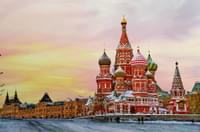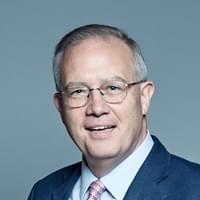
Can Russia reform?
Evgeny Pudovkin examines plans to reboot the Russian economy and lead the motherland once more onto the path to prosperity.
Russia is a great power, whose interests on the world stage are to be reckoned with. We know this because the country's politicians and state TV presenters keep telling us so. Yet as many have observed, this outwardly robust façade masks deep-rooted problems, of which an anemic economy is the most evident. Current projections for annual GDP growth during the next few years remain in the doldrums at less than 1.5 per cent – far below the three per cent target set by the Kremlin.
Heeding the leadership's demands, experts came up with two main strategies to boost economic prospects. The best policies have a chance of making it in the final plan that will be implemented during the next presidential term (2018-24).
What can be done?
Alexei Kurdin, a former finance minister and a head of Centre for Strategic Research Foundation (CSR) believes the solution lies in structural reforms, privatisation, investment in human capital (i.e. in health and education) and technological modernisation. The CSR's plan has not been published in full, but everyone pretty much knows what to expect. Kudrin, a prominent figure on the liberal right, has already outlined his pro-market agenda in the article he wrote jointly with the economist Evsey Gurvich.
Kudrin finds his rival in Sergei Titov, ombudsman for entrepreneurial rights and a head of Stolypin Club, an expert group. His opinions differ from that of the former finance minister on two main issues. First, Titov wants to use additional finances to spend on helping businesses, not investing in 'human capital'. Secondly, Stolypyn Club is more relaxed about expanding monetary emission, or 'Quantitative Easing'. Kudrin, though willing to expand the budget deficit slightly, is very hawkish on inflation and supports more orthodox macroeconomic policies.
Yet, crucially, the two strategies overlap on some major points. Like Kudrin, Titov wants to see government share in the economy reduced. Both experts believe in the rule of law being properly enforced by independent courts. Finally, the rivals agree on the need to mend relations with the West.
Existing debate has mainly focused on the two plan's differences, namely on monetary policy. However, it's also worth reflecting on whether wider initiatives endorsed in both plans can be reconciled with the Kremlin's agenda. When it comes to reforming the economy, the devil is not always in the detail. There are more conspicuous factors inhibiting progress.
The price of reform
The problem of nepotism and aggressive rent-seeking (bribes, unlawful seizure of capital; non-market transactions) is not a case of a few rotten apples. Such behaviour among oligarchs and the security elite (so-called 'siloviki') is widespread. The absence of effective European rule of law is conspicuous. It is these challenges that stand in the way of Kudrin's vision of an entrepreneurial society, most obviously by increasing the risks of doing business. Regarding Titov's plan for the provision of state aid to key industries, its costs will balloon due to the corruption and inefficiency.
Yet control over strategic industries and over capital and oligarchs is crucial for Putin. He remembers the political mayhem of the 1990s, when the money flowed more freely, cultivating opposition parties and media. The state could not order big businesses – including within the oil sector – into its preferred direction.
All that was put an end to in 2001. Then, Putin and oligarchs concluded a so-called "kebab agreement". Post-perestroika Gastbys agreed to curb their political ambitions. In exchange, the government closed its eyes on how much (and by what means) they could acquire wealth.
Why would Putin do away with this arrangement now, when political tensions, if anything, begin to escalate?
Another challenge that looms large is sanctions imposed by the US and the EU. Isolation from the Western imports in key spheres will, according to Titov, "make the task of Russia's technological modernization virtually impossible". The same sentiments are shared by Kudrin and Gurvich.
Further, the Kremlin considers it imperative to respond to NATO's strengthening of its Eastern borders. That means more money on defence and less on education and infrastructure.
Despite all that, however, it remains doubtful whether Putin will be willing to make concessions on foreign policy, namely on Ukraine, which remains the main stumbling block. Breaking the 'Crimea consensus' that has rallied the country around the flag is also something the president would be reluctant to entertain. The West, in its turn, is not ready to accept the former USSR as Russian 'sphere of influence'.
The third way
Modern Russia is the house that Vladimir Putin built. If he wants a renovation, it will – as we've seen – prove to be an arduous task indeed.
Thus, the most plausible scenario involves both Titov and Kudrin adjusting their ambitions in line with the president's more realistic expectations. Putin will cherry-pick a few technical proposals. Those will then be incorporated in a largely conservative strategy put forward by the Prime Minister Dmitry Medvedev. That is also where, according to some reports, current deliberations are leading.
It's not like we haven't seen it before. As Russia's former finance minister Andrey Nechaev noted, something similar took place in 1990, when Gorbachev asked Prime Minister Nikolay Ryzhkov to develop a roadmap to help the Soviet economy adapt to free market. In the end, the Kremlin fused Grygory Yavlinksy's bold programme with its own plan. The result was a dog's breakfast.
The road not taken?
There is a slim hope that Putin will go for a more ambitious vision of change, appointing a new figure to the post of Prime Minister or a reform czar to deliver this bold agenda. Kudrin was at one point touted as a candidate for this role. He has close personal ties with the president: the two even shared a flat when Putin just came to St Petersburg to launch his political career. Putin's backing could help the reformists fend off challenges from other interest groups and even begin to rival the Kremlin's influence. Apart from that, it could provide the impetus needed to both Western and Russian business communities who are trying to lobby for greater sanctions relief.
Hope dies last, of course. But I wouldn't hold my breath.














